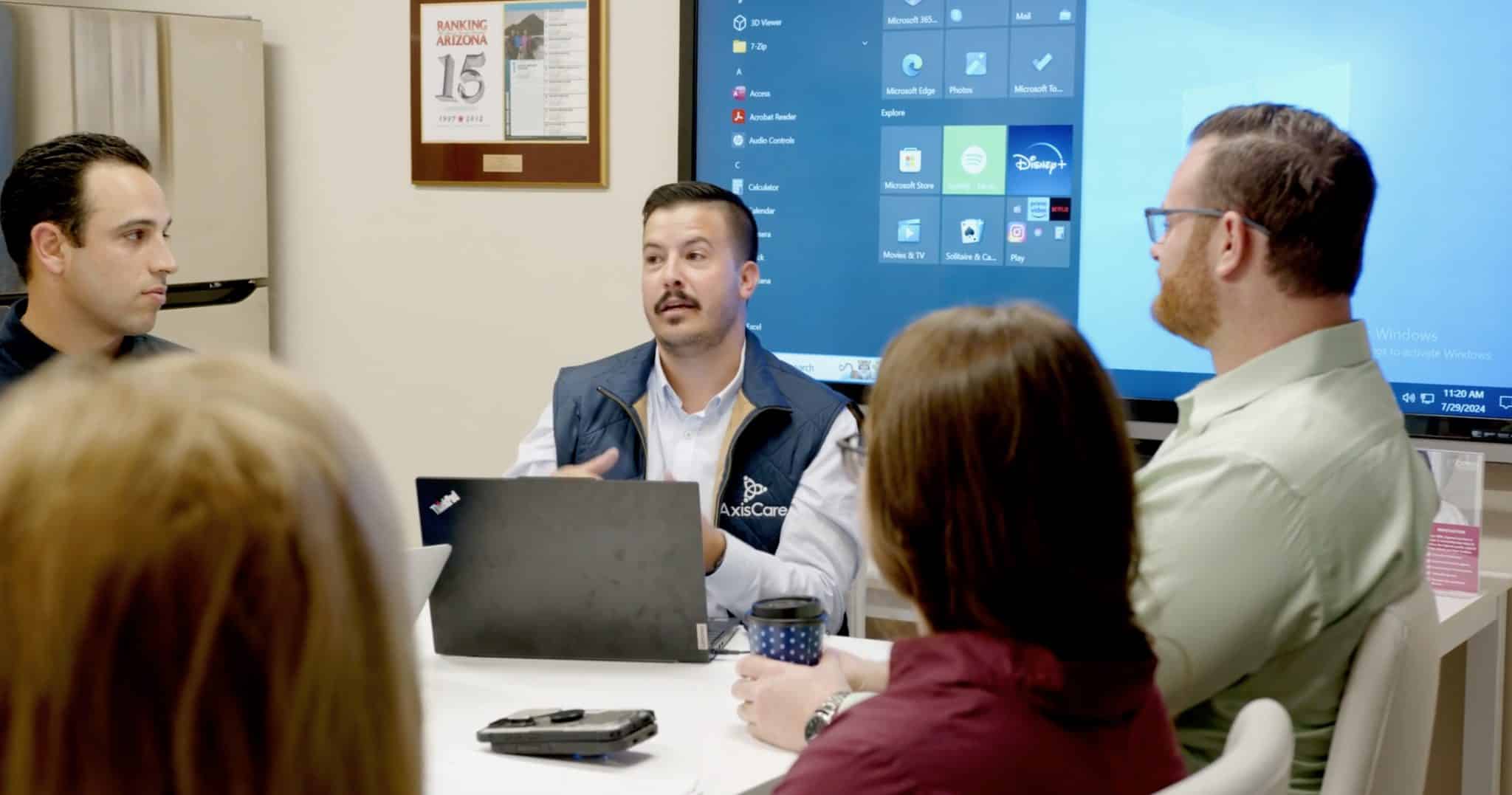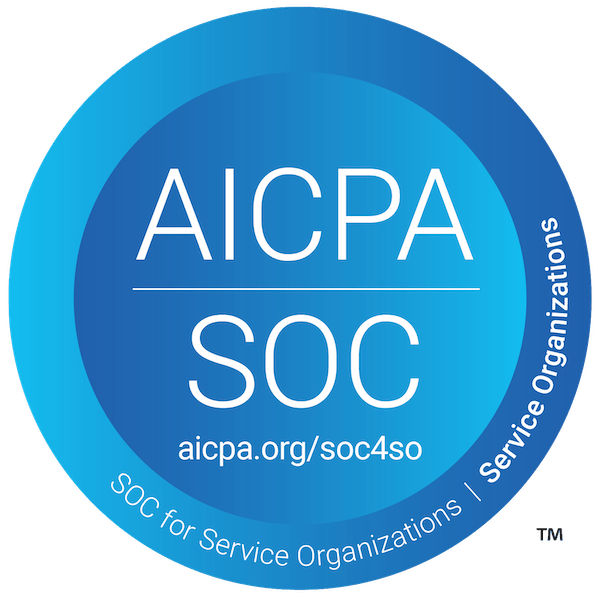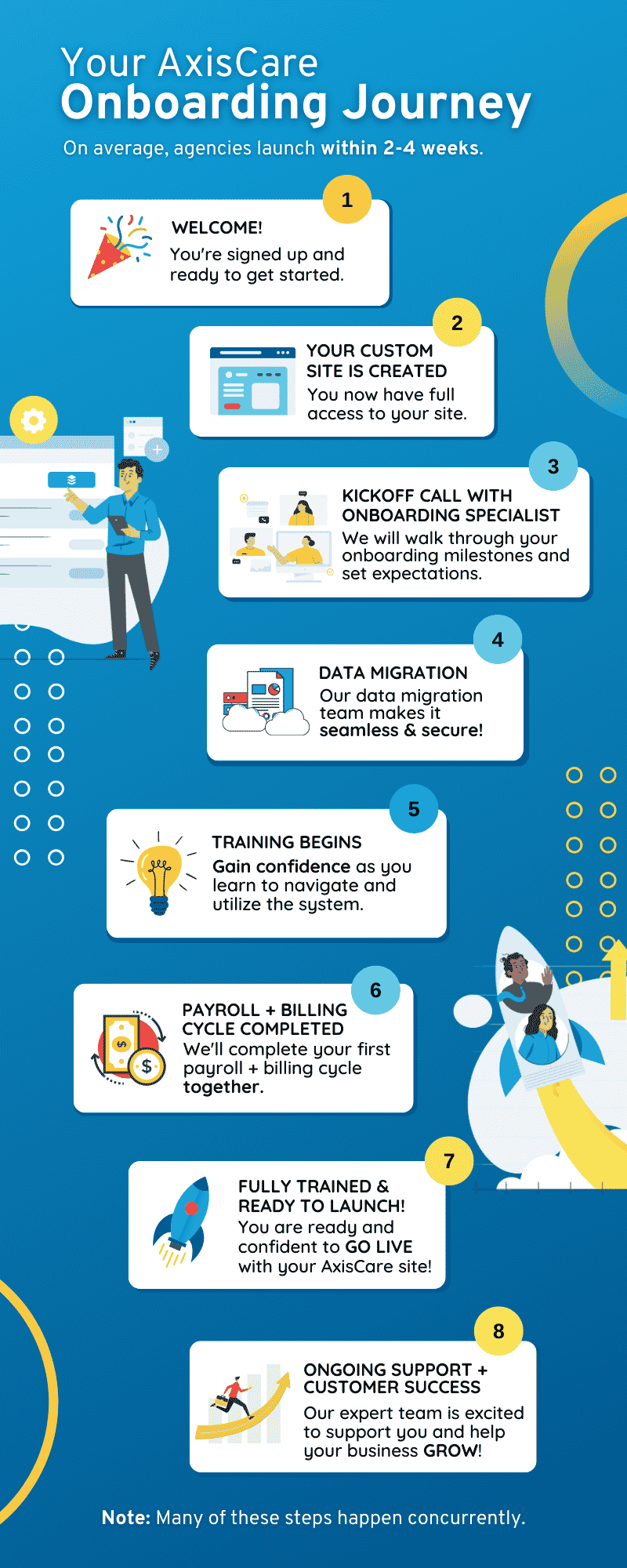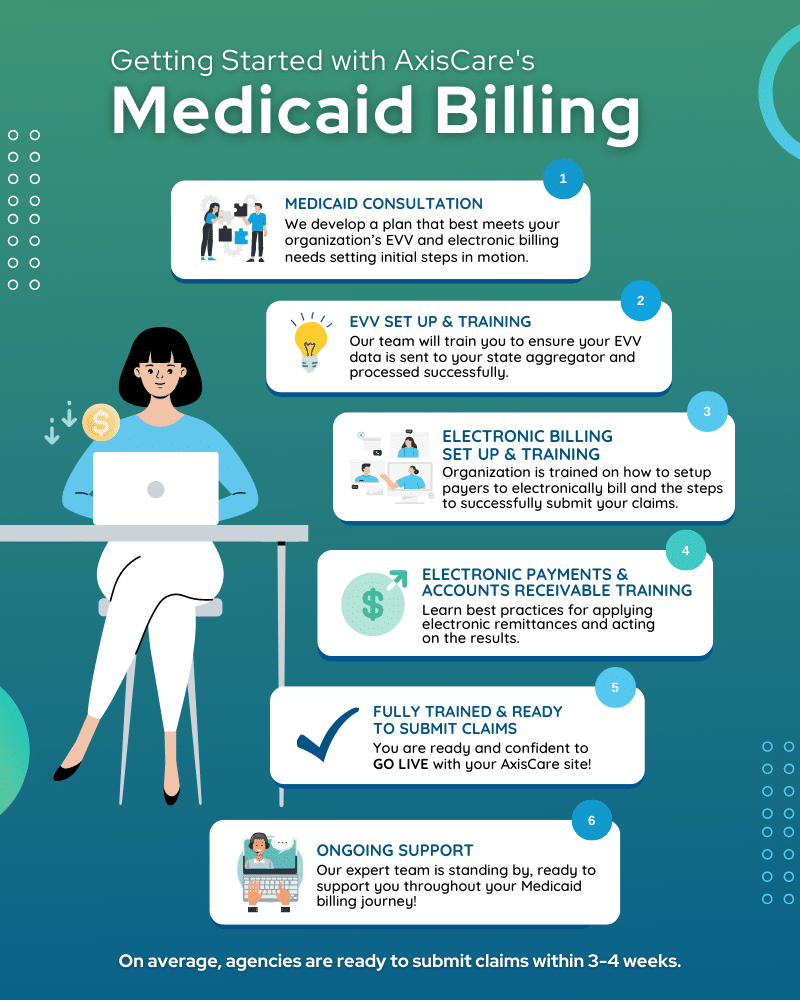Recruiting and retaining compassionate caregivers is a critical cornerstone for providing quality in-home care. As demand for these services continues to rise, it’s increasingly important to build a dedicated caregiving team – but the current job market and economic conditions aren’t making that particularly easy.
How can your agency attract talent that’s not only highly skilled but will also stick around? Use this piece as a blueprint for your updated recruiting and caregiver retention strategy.
The Importance of Caregiver Recruitment
In an unstable caregiving labor market, it may feel like an impossible task to build a reliable, retainable employee roster. In reality, it’s a challenge – not an impossibility. And the best way to approach a challenging task is to understand the forces at play.
The Great Resignation
Catalyzed in large part by COVID-19, what is now known as the “Great Resignation” has significantly impacted caregiver recruiting. As individuals reevaluate their career priorities and seek more fulfilling opportunities, home care agencies must not only attract but also retain caregivers in a broader and more competitive market.
Inflexible Scheduling
Similar to the Great Resignation, COVID-19 also set a new standard for scheduling expectations. Having tasted the freedom of remote work, employees have become more reticent to sign on for jobs that require a constant in-person presence. In-home caregiving, of course, is one of those roles that simply cannot be done remotely. However, it’s essential for caregiving agencies to understand the changing dynamics of the workforce and adapt to these evolving needs. While caregiving cannot be carried out remotely, agencies can explore other ways to attract and retain talented caregivers. By offering flexible scheduling options, providing competitive compensation, and fostering a supportive work environment, agencies can demonstrate their commitment to caregivers’ well-being and job satisfaction.
Lack of Professional Development
The demand for specialized training and advancement options has become more pronounced, leading caregivers to seek out opportunities to sharpen their skills. This places the onus on agencies to not only recognize this need but also to proactively build out comprehensive training programs and opportunities for their caregivers. By doing so, agencies can empower their caregiving staff with the tools and knowledge they need to excel in their roles, ensuring the delivery of exceptional care to clients while simultaneously nurturing the professional growth and job satisfaction of their dedicated caregivers.
Caregiver Turnover
The demands of the caregiving industry have made it notorious for burnout and employee churn. Despite their best efforts, agencies are still up against challenging rates of turnover.

Strategies for Recruiting Caregivers
No matter how challenging industry conditions may be, there are plenty of techniques at your disposal to ensure that caregivers not only consider your agency over others, but also remain committed to their work.
Create Effective Job Descriptions
To filter initial applicants, your job descriptions should be detailed and transparent. Provided with clear expectations and qualifications, many job seekers will immediately know whether they are unfit or uninterested in the nature of caregiving. On the other hand, job descriptions shouldn’t be too restrictive or demanding. Remember that applicants are looking for meaningful and fulfilling work. Here is a great example from Activated Insights:
“We are looking for a compassionate caregiver who will provide companionship and basic daily care to a 72-year-old veteran who loves jazz and recently lost his wife’ is much more compelling than ‘Caregiver needed to take care of elderly clients.’”
Use Technology to Your Advantage
There are many digital recruitment resources at your fingertips, including social media and online lead sites. What’s more, AI recruiting is drastically changing the hiring landscape for home care and beyond: these new tools can help agencies screen candidates more efficiently, and advanced algorithms can even match candidates with open caregiver positions.
Assess Caregiving Skills With the Right Questions
Whether you hold multiple interviews or just a single round, it’s important to ask questions that elicit thoughtful responses and help you find the caregiver qualities you are looking for in an employee. This type of job isn’t just about previous work experience, certifications, or a charming personality; it’s about dedication and suitability.
Questions with detailed caregiving scenarios highlighting challenging parts of the job will help give you insight into the applicant’s empathy and problem-solving skills. Caregiving is highly personalized for each client, which requires compatible caregiver/client personalities. An ideal combination makes work more palatable and helps caregivers remain invested in the client long-term.
Consider a Paid Trial Period
Even after the interview process, it’s helpful to offer a trial period before officially offering a caregiving job. Trial periods should last long enough to give caregivers a thorough sense of the job requirements, and give agencies a chance to confirm they’re a good fit. Caregivers can visit with a range of clients and determine which clients are best suited to their skills.
After the trial period, you can end with a final interview. This can be used as a debrief to summarize feedback from the client, the caregiver, and the agency. Together, all three parties can determine the caregiver’s suitability for the job. You may also have an excellent caregiver on your hands with difficult-to-please clients; trial periods can help caregivers get a sense of what it’s like to do the job under these circumstances.
Implement Referral Programs
One of the best ways to scout new talent is by receiving referrals from current employees. Since current staff are familiar with the company culture, they’re also more likely to recommend candidates who align. Referred employees are typically more likely to stay with a company when recommended by someone they know and trust, and the process requires far less time and recruitment resources.
Tips to Retain Caregivers
Hiring great talent is only half the battle; the rest of the effort surrounds keeping caregivers on board for the long haul. In order to keep morale and motivation high, their hard work needs to be well worth the effort.
In addition to a competitive salary, you should be offering perks and incentives that recognize loyalty, performance, and more. Aside from bonuses, these rewards can take the form of additional training opportunities, extended healthcare benefits, and work-life balance support. Here are a few examples:
- Paid Time Off
- Flexible Scheduling
- Subsidized Gym Membership
- Longevity Bonus
- Subsidized Continuing Education
- Childcare Benefits
Make Caregivers' Lives Easier With AxisCare
From a smooth onboarding experience to streamlined day-to-day operations, show caregivers you’re committed to their satisfaction with AxisCare home health care software. Book a free demo to see how we can support your agency!











